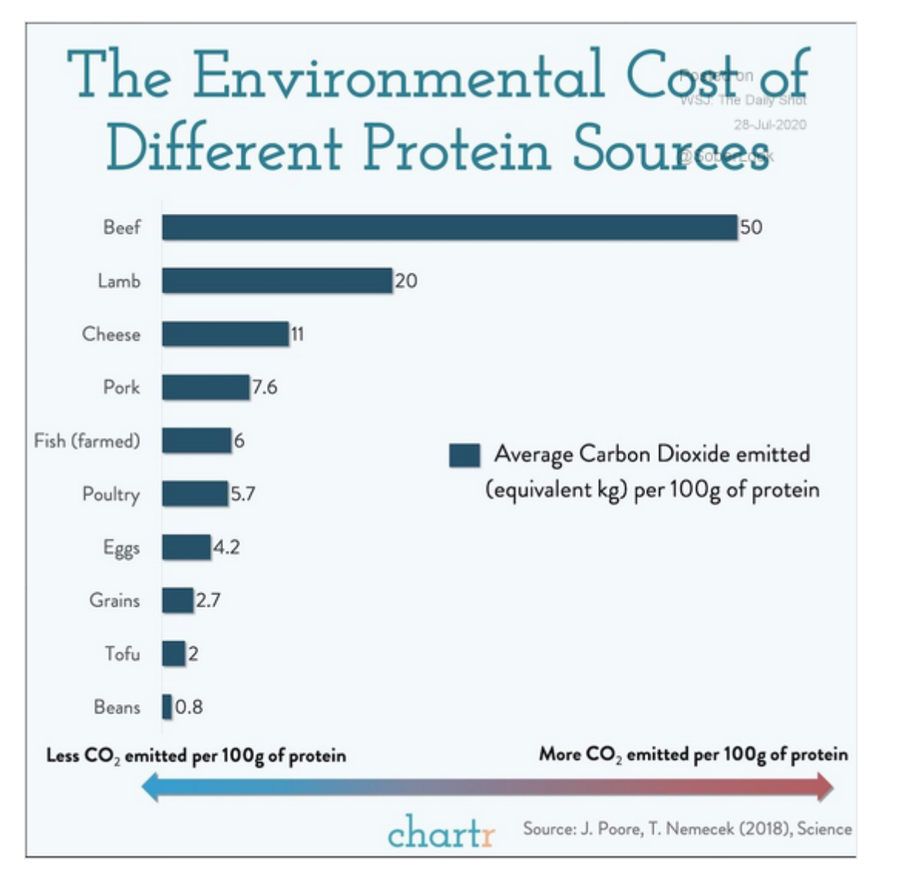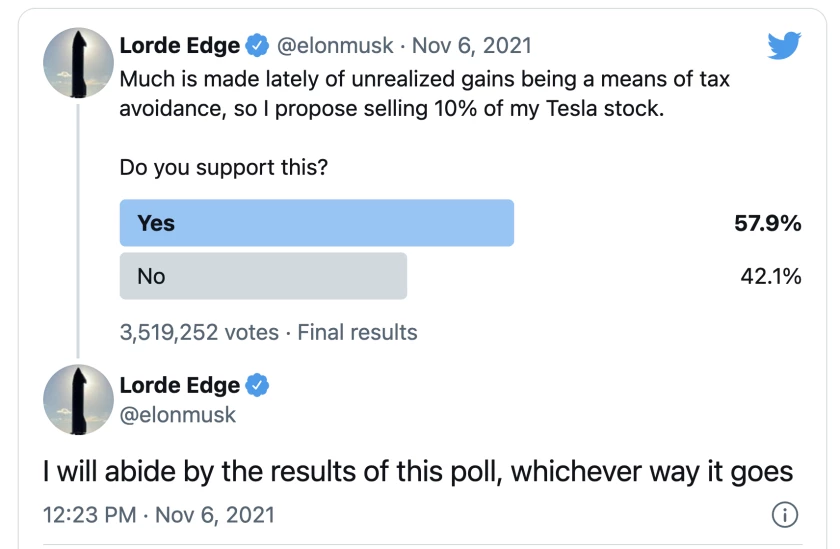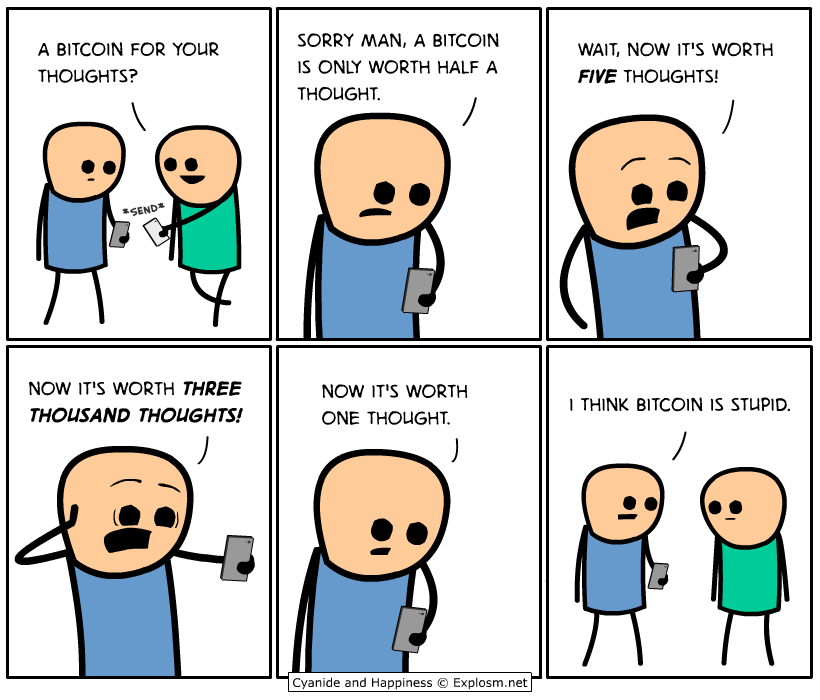I can't excerpt the relevant parts of this NPR piece because they left those out.
Given a major, reoccurring question, journalists will tend to converge, often with little or no apparent thought, on one or two standard framings. Sometimes the writers and editors are manipulated into telling the story a certain way. The Republican Party has grown remarkably adept at this over the past thirty years. Other times, it seems to happen purely by chance, almost an example of symmetry breaking, the result of the powerful pull of herd mentality.
Approaching the climate impact of our diets in terms of animal protein vs. plant-based protein reflects both advocacy and a certain underlying logic. In many contexts (such as healthy eating), the plant v. animal distinction make a great deal of sense, but not if you're talking about greenhouse gases. The range of footprints within the animal protein category is simply too big to be treated as a single category.
Compared to pushing vegan meals on the general public, it is relatively easy to persuade people to opt for one type of animal protein over another (marketers do it all the time). Though estimates vary, these substitutions can reduce the carbon footprint from 60% to 90%. Anything beyond switching from beef to poultry or perhaps even to pork starts getting into diminishing returns. Every shift down the scale is an improvement, but at some point not enough of an improvement to justify the additional effort.
I don't want to get sucked into the weeds debating the pros and cons of a vegan lifestyle -- it's healthier, more ethical and better for the environment -- but you cannot responsibly report on this topic and group together two more or less equally popular options such as beef and chicken without pointing out that one is five to ten times as bad as the other.
This NPR report literally does not have a single word on the differences between various sources of animal protein. The listener is left with the impression that one is pretty much as bad as the other. Given the seriousness of this situation, that's dangerously negligent journalism.
For more on the issues with grouping together things of radically different magnitude, take a look at our post on cigarettes and cocaine arguments.



